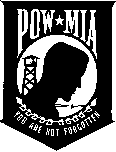American POWs in Southeast Asia and
the Violation of a National Ethic
By Wesley
Fryer.
<-- Return to Table of Contents
3. The American POW ethic in Southeast
Asia
The American "ethic" regarding the treatment of
POWs was reflected in the North Vietnamese propaganda efforts during
the war aimed at convincing the world that prisoners received "humane
and lenient treatment" in North Vietnamese prisons (Risner 85). The
American POW ethic extended beyond "humane treatment," however. The
ethic was seen in the numerous search and rescue attempts which took
place throughout the course of the war. Time after time, the American
military demonstrated its willingness to risk the loss of additional
men and aircraft for the chance to rescue one or two fellow pilots.
When a plane would go down, a C-130 would usually be designated to
provide command and control for the rescue effort, F-4s to provide
protection from enemy MIG aircraft, A-1E Skyraiders to direct
suppressive fire on enemy forces close to the downed pilots, and a
"Jolly Green" helicopter to pick up the men (Broughton 161). This
commitment to rescue fellow airmen and prevent them from becoming
prisoners had a strong, positive effect on the morale of the men who
fought the war for the United States in Southeast Asia. They knew
their country was committed to bringing them home if they were shot
down, and that the U.S. government, in essence, had made an implicit
promise to bring them home if they fell into the hands of the enemy.
The American ethic regarding POWs, therefore, included not only a
recognition of POWs' right to humane treatment, but also included an
obligation on the part of the U.S. government to secure the return of
American POWs captured in wartime.
The strongest display of this American ethic
regarding POWs during the Indochina conflict took place on November
21, 1970. The Son Tay raid attempted to rescue American POWs being
held at a camp twenty miles from Hanoi, and although not successful
in rescuing prisoners, the raid still sent a clear message to the
North Vietnamese. The Son Tay raid told the Southeast Asian enemies
of the United States that not only were American POWs not forgotten,
but also that these men were extremely valuable to the U.S.
government (Hubbell 536). After the raid on Son Tay, the American POW
ethic was clear. American POWs were not the easily expandable
instruments of policy, but rather, were regarded as valuable human
beings who not only had the right to live but also the right to
return home. The United States wanted to secure the return of its
POWs for this idealistic reason, because of the effect this
commitment had on the armed forces as a whole, and because
pragmatically these men could return to "fight another day." Like the
plot in Robert Heinlein's novel Starship Troopers, the American POW
ethic evolved historically to state that "the war is not over till
all the men are back."
Proceed to:
Section 4: A Breach of
Trust: POWs are left behind
You are viewing my paper:
American POWs in Southeast Asia and the Violation of a National Ethic"

Return to my
POW/MIA homepage
© Copyright 1991 by
Wesley
Fryer.
Contact Wesley using
this web form

This work is licensed under a Creative Commons Attribution 3.0 Unported License.

